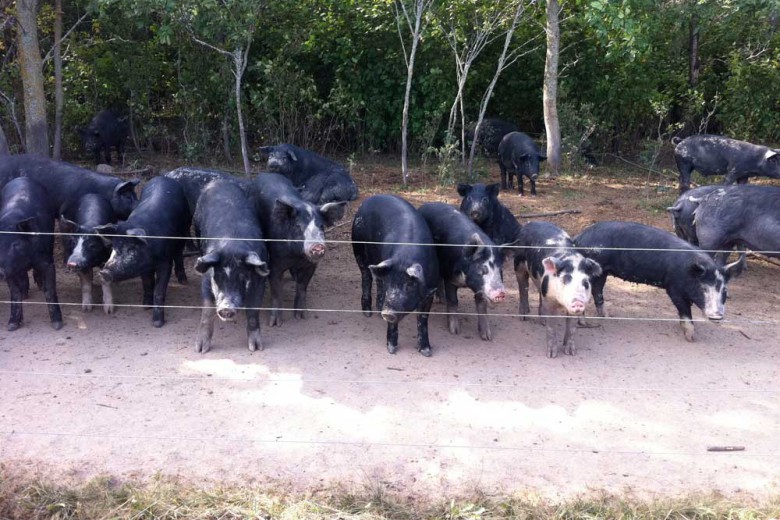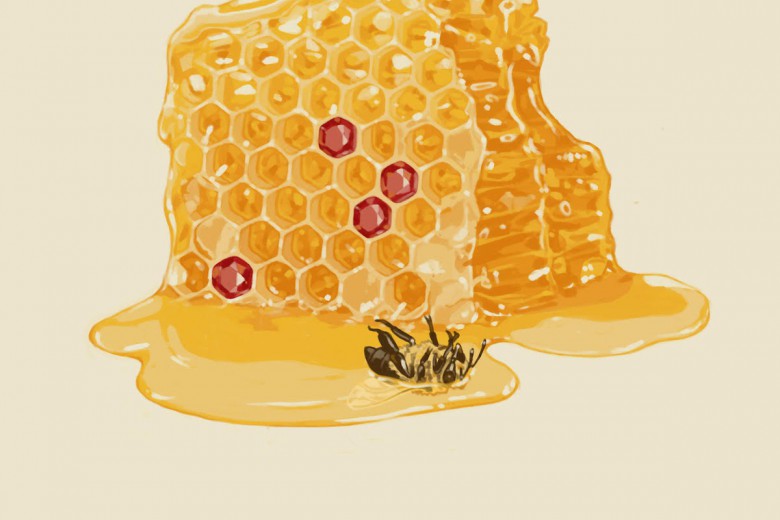
The 2011 federal election was a notable one for food security activists across the country. For the first time, food – not just agriculture – was part of the national political discourse. All four major parties released their own versions of a Canadian food policy, and the release of the People’s Food Policy (a two-year effort by hundreds of grassroots organizations) just weeks before the election grabbed the attention of national media like the Globe and Mail.
The food movement, it seemed, had arrived.
Unfortunately, another issue with serious implications for food security and food sovereignty in this country went unnoticed by mainstream media and untouched by the federal leaders: CETA, the Canadian-European Trade Agreement, otherwise known as the biggest trade deal since NAFTA.
The federal government has wrapped up its eighth round of talks with EU officials, and Stephen Harper has said negotiators are on track to clinch a deal by the end of this year.
Since Canada already enjoys relatively free trade with the European Union, why is CETA even necessary? Public interest groups like the Council of Canadians and Canadian Centre for Policy Alternatives argue this trade deal is about putting municipal and provincial public service contracts up for grabs by foreign multinational corporations.
The Council of Canadians estimates that Canada spends as much as $200 billion on these types of contracts for services such as road construction, water and sewer services, and public transportation. Until now, municipalities have had the option of favouring local businesses. CETA includes a clause similar to NAFTA’s Chapter 11 which would make it possible for corporations to sue local governments for compensation if they believe those governments are standing in the way of profits.
The National Farmers Union is concerned about the chilling impact CETA could have on local food procurement in what’s known as the MUSH sector – municipalities, universities, schools and hospitals. This sector feeds millions of people every day, and its collective buying power is identified as an important lever in the local food movement. Already, schools like the University of Toronto and some municipalities, including Markham, Ontario, have adopted local food procurement policies. Under the new agreement, however, giving preference to local suppliers could result in a legal and financial nightmare for these institutions.
NFU president Terry Boehm says that a clause in the agreement would also prohibit these public sector institutions from breaking up contracts in order to fall under the dollar value to which international trade agreements apply.
“So it really, in our minds, hinders the potential for local food systems,” says Boehm.
The union has other concerns about intellectual property rights in the agreement that would allow corporations to take precautionary enforcement procedures to protect patented products – in particular, seeds.
Monsanto has already demonstrated its legal right and might under NAFTA to go after farmers for patent infringement. Perhaps the most high-profile case was Saskatchewan farmer Percy Schmeiser who was sued by Monsanto after its Roundup Ready strain of canola was found growing on his fields, a result of pollen drift, he argued in court, and completely beyond his control.
“[CETA] makes it worse in that, not only does it go after the person for alleged infringement, it allows these precautionary and enforcement measures to be undertaken … seizure of property, even going after third parties who are deemed to have allegedly assisted the farmer,” says Boehm. “It sends a chill throughout the entire seed system.”
Another key issue in the agreement is related to the dairy industry in Canada. Dairy (along with poultry and eggs) is a supply-managed market, which means domestic supply is controlled by federal and provincial marketing boards and protected with limited quota and high tariffs on imports. The EU, a major producer of cheese, is pushing the Canadian government for greater access to this country’s cheese markets, either through increased import quota, a lower tariff on imports that exceed the quota, or both.
The Canadian government so far has given no indication of where it stands on this issue, although almost immediately after winning a majority it began dismantling the Canadian Wheat Board. Its current position is to maintain the status quo when it comes to import regulations on other supply-managed markets.
The Dairy Farmers of Canada have been watching closely throughout the CETA negotiations, says the organization’s spokesperson Thérèse Beaulieu, “and reminding the government that that is their position and that’s the commitment they made in their electoral platform. The Liberals kept saying that they are the party of supply management, the Bloc as well. All the parties are committed to this position and that’s what we expect to see.”
Grace Skogstad, a University of Toronto professor who researches Canadian agricultural and food policy, says if the Canadian government were to allow some concessions for European cheese producers, either through lower tariffs or an increased quota, “if you wanted to eat more French cheese, you could probably get it at a cheaper price. Usually tariffs are to protect producers, not consumers.”
It would be a different story for those producers and consumers trying to promote local food “because essentially you’re importing food that you could be producing locally. If you have a strong preference for supporting local farmers … then you tend not to like any trade agreements that make it easier for products that are coming from somewhere else.”
However, Canadian agriculture is a divided sector, Skogstad points out. Our cattle and pork producers depend on export markets to absorb surplus product. If Canada could negotiate lower tariffs on pork going into the EU, for example, it would help the industry here.
“My own view of this, from what I’ve been able to gather, is that there would be some wins and some losses on both sides,” says Skogstad. “I think it’s always important for farmers to get organized and lay their concerns out. It is a very big deal, this agreement; it’s a comprehensive economic agreement.”
“It is a truly comprehensive agreement,” agrees Boehm. He says the NFU has been scheduled numerous times to appear before the standing committee on agriculture and agri-food at the House of Commons but so far have been unable to due to cancellations, changes of scheduling, and then the election.
“I think it is significant not just for Canadian agriculture but Canadians in general,” he says. “It’s a fundamental shift in the philosophical view of what government is. It shifts away from government being a creature of citizens to act in the public interest to being a creature that acts in the corporate interest.”
Get informed!
NFU CETA fact sheet: nfu.ca/press_releases/2010/CETA-FactSheet.pdf
Council of Canadians’ online campaign and national speaking tour: canadians.org/trade/issues/EU/tour-2011.html
Take action!
Sign and distribute the following petitions.
Council of Canadians: canadians.org/trade/documents/CETA/CETA-petition-0111.pdf
National Farmers Union: nfu.ca/petitions/CETA-mar2011.pdf
Canadian Union of Public Employees: cupe.ca/action/halt-ceta-negotiations






